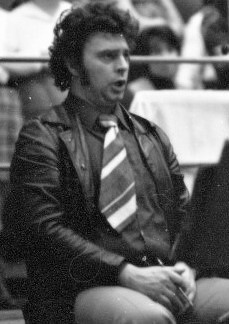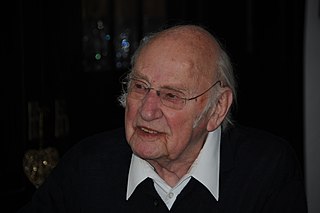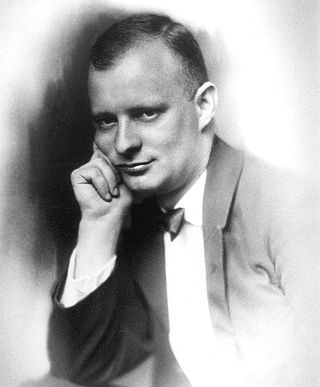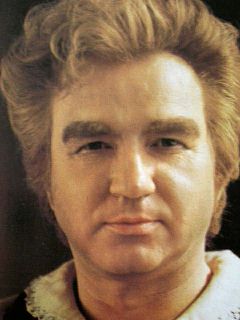
Wozzeck is the first opera by the Austrian composer Alban Berg. Composed between 1914 and 1922, it premiered in 1925. It is based on the drama Woyzeck, which German playwright Georg Büchner left incomplete at his death. Berg attended the first production in Vienna of Büchner's play on 5 May 1914, and knew at once that he wanted to base an opera on it. From the fragments of unordered scenes left by Büchner, Berg selected 15 to form a compact structure of three acts with five scenes each. He adapted the libretto himself, retaining "the essential character of the play, with its many short scenes, its abrupt and sometimes brutal language, and its stark, if haunted, realism..."

Patrice Chéreau was a French opera and theatre director, filmmaker, actor and producer. In France he is best known for his work for the theatre, internationally for his films La Reine Margot and Intimacy, and for his staging of the Jahrhundertring, the centenary Ring cycle at the Bayreuth Festival in 1976. Winner of almost twenty movie awards, including the Cannes Jury Prize and the Golden Berlin Bear, Chéreau served as president of the jury at the 2003 Cannes festival.

Hildegard Behrens was a German operatic soprano with a wide repertoire including Wagner, Weber, Mozart, Richard Strauss, and Alban Berg roles. She performed at major opera houses around the world, and received several Grammy Awards for performances with the Metropolitan Opera.

Otto Schenk was an Austrian actor, stage director for plays and opera, and theatre director. He worked internationally at major houses such as the Vienna State Opera and the Metropolitan Opera in New York City. Schenk's operatic productions included works by Mozart, Verdi, Richard Strauss and Alban Berg. He directed the world premiere of Friedrich Cerha's Baal at the Salzburg Festival in 1981. Some of his productions have remained in the repertoire for decades, such as Puccini's La Bohème at the Bavarian State Opera from 1969, Die Fledermaus by J. Strauss at the Vienna State Opera from 1972, and his traditionalist version of Wagner's Ring cycle at the Metropolitan Opera from 1986 to 2009. Schenk also directed films of operas and plays, and was on the board of directors of the Salzburg Festival and the Theater in der Josefstadt.

Bernd Weikl is an Austrian operatic baritone, particularly known for his performances in the stage works by Richard Wagner. He also has written books and directed operas.
Wolfgang Brendel is a German opera singer (baritone), and a professor of voice at the Jacobs School of Music at Indiana University. He has performed throughout Europe, Asia, and North America.

Franz Mazura was an Austrian bass-baritone opera singer and actor. He performed at the Bayreuth Festival from 1971 for 25 years and at the Metropolitan Opera for 15 years. He was made a Kammersänger in 1980 and an Honorary Member of the Nationaltheater Mannheim in 1990. He most often played villains and strange characters, with signature roles including Klingsor in Wagner's Parsifal. Mazura took part in world premieres, such as the double role of Dr. Schön and Jack the Ripper in the world premiere of the completed version of Alban Berg's Lulu at the Paris Opera in 1979, and as Abraham in Giorgio Battistelli's Lot in 2017. Two of his recordings received Grammy Awards. His voice was described as with dark timbre, powerful and like granite, with perfect diction. His acting ability was described as "well-supplied with vivid imaginative touches, whether deployed in comic roles or characters of inexorable malevolence. Mazura could achieve more impact with a lifted eyebrow or a belligerently thrust chin than many artists could with a ten-minute monologue." He had a long career, appearing at the Staatsoper Berlin the night before his 95th birthday.

Mörder, Hoffnung der Frauen is an opera in one act by Paul Hindemith, written in 1919 on a German libretto by Oskar Kokoschka which he based on his play of 1907. The opera was the first in a triptych of expressionist one-act operas, the others being Das Nusch-Nuschi, and Sancta Susanna. They were the first operas written by Hindemith. The first two were premiered together in Stuttgart on 4 June 1921, all three were performed at the Oper Frankfurt in 1922.
Hanna Schwarz is a German mezzo-soprano and contralto singer in opera and concert. In 1976 she performed the roles of Fricka and Erda in the centenary Jahrhundertring production at the Bayreuth Festival, directed by Patrice Chéreau.

Reiner Goldberg was a German operatic heldentenor who made an international career performing and recording. He appeared at the Berlin State Opera from 1972, and was a member of the ensemble from 1981. Goldberg achieved attention when he sang the role of Wagner's Parsifal for a 1982 opera film directed by Hans-Jürgen Syberberg. He then became known for performing the tenor roles of Wagner's stage works in leading opera houses in Europe and worldwide, such as the Bayreuth Festival where he appeared from 1986 as Tannhäuser, Stolzing in Die Meistersinger von Nürnberg, Siegfried in both Siegfried and Götterdämmerung, and Erik in Der fliegende Holländer. He performed at the Metropolitan Opera as Siegfried, conducted by James Levine and alongside Hildegard Behrens as Brünnhilde, resulting in a recording that won a Grammy Award.
Johan Reuter is a Danish baritone and opera singer.
Barbara Scherler is a German classical mezzo-soprano and contralto singer in opera and concert. She was a member of the Deutsche Oper Berlin and active in performances and recordings of operas of the 20th century.

Gabriele Schnaut was a German classical singer who started her operatic career as a mezzo-soprano in 1976 and changed to dramatic soprano in 1985. She performed at the Bayreuth Festival from 1977, in the filmed Jahrhundertring, to 2000. After a breakthrough performance as Richard Wagner's Isolde at the Hamburgische Staatsoper in 1988, she became a leading dramatic soprano on the stages of the world in roles such as Wagner's Brünnhilde and Richard Strauss' Elektra. From 2008, she ventured into dramatic mezzo-soprano character roles such as Klytämnestra in Elektra, Herodias in Salome and Kostelnicka Buryjovka in Leoš Janáček's Jenufa.
Gerd Nienstedt was a German and Austrian opera singer, bass and bass-baritone. After an international career at major opera houses and the Bayreuth Festival, he was also a theatre director, stage director and academic voice teacher.

Michael Boder was a German conductor of opera and concert who worked internationally. He was music director of the Basel Opera from 1989 to 1993, of the Liceu in Barcelona from 2008 to 2012, and principal conductor of the Royal Danish Theatre to 2016. He conducted regularly at the Vienna State Opera, including the world premieres of Cerha's Der Riese vom Steinfeld and Reimann's Medea. He also conducted the premieres of operas by Pascal Dusapin, Hans Werner Henze, Luca Lombardi, Krzysztof Penderecki, and Manfred Trojahn, among others.
Elisabeth Glauser is a Swiss operatic mezzo-soprano and an academic teacher of voice. She was engaged at opera houses in Germany and has appeared at international festivals including the Bayreuth Festival and the Glyndebourne Festival. She has focused on roles by Richard Strauss and Richard Wagner, and has created roles in contemporary opera, such as Babette in Henze's Die englische Katze.
Albert Dohmen is a German operatic bass-baritone who is known internationally for performing leading roles by Richard Wagner and Richard Strauss. He has also worked in concert halls and given lieder recitals.
Gerhard Siegel is a German operatic tenor.
John Bröcheler is a Dutch operatic baritone who began as a concert singer, specialising in contemporary music such as the world premiere of Mauricio Kagel's Mare Nostrum. His appearance at the Dutch National Opera in Donizetti's Maria Stuarda alongside Joan Sutherland was followed by an international operatic career, performing for example as Mandryka in Arabella by Richard Strauss, and again in world premieres such as Menotti's La Loca at the New York City Opera and the complete version of Henze's König Hirsch at the Staatsoper Stuttgart.
Michael Volle is a German operatic baritone. After engagements at several German and Swiss opera houses, he has worked freelance since 2011. While he first appeared in Mozart roles such as Guglielmo, Papageno and Don Giovanni, he moved on to title roles such as Verdi's Falstaff, Tchaikovsky's Eugene Onegin and Alban Berg's Wozzeck. He has performed at major opera houses in Europe and the Metropolitan Opera, in roles including Mandryka in Arabella and Hans Sachs in Die Meistersinger von Nürnberg. His awards include Singer of the Year by the magazine Opernwelt and Der Faust.










